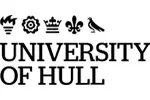We're moving! This site will be relocating to goingto.university in 2026. Please update your bookmarks to the new address.


| The award | How you will study | Study duration | Course start | Domestic course fees | International course fees |
|---|---|---|---|---|---|
| MSc | Full-time | 1 year | - | - | - |
We are sorry, but due to exceptional demand, this course is now closed for applications from international students for entry in 2022. Applications for 2023/4 will open in September 2022.
If you are a home (UK) student and want to apply for this postgraduate programme please contact admissions on 01482 466850 or [email protected].
This programme has been designed to give you an advanced understanding of mathematics. Choose to specialise in a particular area or study across a range of mathematical topics in pure, applied and statistics. You will gain a solid foundation for any career requiring a strong mathematical background, including education, finance and engineering. Our graduate seminars and projects let you work closely with experts at the forefront of research and give you the transferrable skills that are invaluable for employment and further studies at PhD level.
You'll be able to enhance your mathematical understanding using computer programming in MATLAB, R, Python and more. The research interests of our staff include: algebra, fluid mechanics, industrial applications of mathematics, theoretical cosmology and astrophysics, statistical mechanics, and data analysis. At Hull, you will be part of a small community of like-minded mathematicians.
There are three trimesters. During the first two trimesters, you'll study the compulsory modules, and choose four optional modules. For the final trimester, you will work closely with a supervisor on an advanced mathematical project.
Core modules
All modules are subject to availability and this list may change at any time.
Advanced Mathematical Project
In coordination with a supervisor you will choose and study an advanced topic of mathematics.
Compulsory modules
All modules are subject to availability and this list may change at any time.
Graduate Seminar A
The graduate seminar allows you to work closely with an academic on a mathematical topic that you are interested in. The module involves regular interactive group discussions, presentations and sharing of knowledge with staff and other students.
Graduate Seminar B
The graduate seminar allows you to work closely with an academic on a mathematical topic that you are interested in. The module involves regular interactive group discussions, presentations and sharing of knowledge with staff and other students.
Optional modules
All modules are subject to availability and this list may change at any time.
Mathematical Logic
Explore first-order logic from a formal, rigorous perspective. You will learn to evaluate and construct logical arguments. Topics include symbolic logic, proofs, consistency and completeness.
Interacting Particle Systems
Systems of interacting particles are investigated using statistical mechanics. Topics include Ising, Potts and voter models, thermodynamic limit, phase transitions and duality.
Capstone Research Topics in Astronomy
This module will deliver cutting-edge research topics across astronomy and astrophysics. You'll also be trained in the use of modern astrophysics databases.
Topics in Data Science
Cover a selection of topics in data science, which lies at the interface of applied mathematics, probability and statistics, physics and computer science.
Computational Algebra
How can algebra be used to solve problems with the aid of modern computing technology? This module gives an introduction to the new mathematical discipline called computational algebra. You will also study related topics in algebra, number theory, and their applications.
General Relativity and Further Quantum Mechanics
The physics of the very large and the very small. You'll learn Einstein's theory of general relativity and explore topics in quantum mechanics.
Hydrodynamic Stability Theory
Understand the basic mechanisms that create instability in flows, and on methods used to calculate the growth rates and length scales of unstable disturbances to a flow
Normally a Bachelor Honours degree (typically 2.2 or above, or international equivalent) in a mathematics or related discipline, but applicants with relevant industrial experience may be considered.
In order to ensure our students have a rich learning and student experience, most of our programmes have a mix of domestic and international students. We reserve the right to close applications early to either group, if application volumes suggest that this blend cannot be achieved. In addition, existing undergraduate students at the University of Hull have a guaranteed 'Fast Track' route to any postgraduate programme, subject to meeting the entry criteria.
Contact University of Hull to find course entry requirements.
Below are some suggested courses at other providers that you may also be interested in:
Master in Digital Marketing & Communication Marketing Management Master Degree
IAAD. - Institute of Applied Art and Design
Find out moreTransnational Queer Feminist Politics with special reference to the Middle East MA
SOAS University of London
Find out moreEducational Psychology: Learning and Performance Master Degree
Erasmus School of Social and Behavioural Sciences (ESSB), Erasmus University Rotterdam
Find out moreIf you do not meet the entry requirements for this course then consider one of these postgraduate preparation courses from another institution:
There are 133 other courses listed from University of Hull. A selection of these are displayed below:
Join the StudyLink email list and never miss a chance to turn your study abroad dreams into reality!

Find out more about studying in the United Kingdom